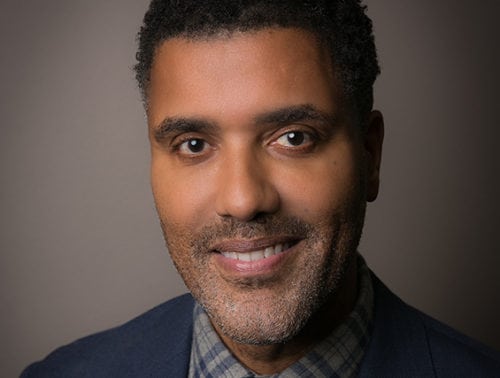William Yates, M.D., started losing his hair in his early 20s, so he understands the impact hair loss can have on one’s self-esteem and self-confidence. As a physician and surgeon in Chicago, he specializes in hair transplantation and other state-of-the-art techniques to treat all hair types for both men and women.
People are used to seeing men with male-pattern baldness, but why is black female hair loss becoming an epidemic?
William Yates, M.D.: Mainly because of styling practices like tight braids, weaves and relaxing chemicals.
A lot of black women with hair loss wear braids, wigs and weaves because they feel like they don’t have a choice. What do you say to them?
Dr. Yates: That’s fine, but when there is evidence of breakage and hair loss, their grooming patterns need to change.
What, if anything, can be done to completely stop hair loss?
Dr. Yates: Unfortunately, at present, there really isn’t anything that can completely stop hair loss. There are pills that men and some women can take that come the closest, called Propecia, but currently, there is no cure.
Does hair transplantation really work for African-American hair of all textures and how much does it cost?
Dr. Yates: Most of the time, the results of hair transplantation in African Americans are amazing. It does not have a good track record for those who have hair loss from scarring. The average cost is $8-$10,000.
Do any of these over-the-counter products to make your hair grow back really work?
Dr. Yates: The question is: What does ‘really work’ mean? Most hair products you obtain over the counter are very similar from the one next to it. What separates them usually is the color of the package or the fragrance. Depending on the ingredients, they can have the possibility of helping hair loss.
What kind of non-surgical treatments do you offer?
Dr. Yates: Medications to treat hair loss such as Propecia, Rogaine is a topical over the counter solution, cold low-level light laser therapy, and PRP (platelet-rich plasma) and stem cell therapy all are effective depending on the cause of the hair loss. In addition to PRP being new and regenerative for hair regrowth, another revolutionary option is follicular micropigmentation where we use pigment to give the illusion of hair. The results are immediate and safe!
You’re in Chicago—how can people find a reputable doctor to treat black hair issues where they live?
Dr. Yates: Call me. Or check out my official websites here and here.
From BlackAmericaWeb
William Yates, M.D.: Combat Hair Loss





